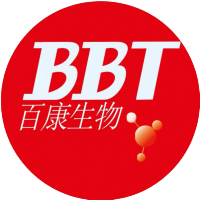A sustainable solution specifically designed for Egyptian flax to improve spinnability from 6N to 24N.
A sustainable solution specifically designed for Egyptian flax to improve spinnability from 6N to 24N.
By Baico Biotech丨Bio-degumming enzyme丨LCB-HK-01
The flax market has experienced a year of dramatic fluctuations. The bumper harvest of French and Belgian flax in August 2024 has significantly eased the global shortage of flax raw materials. After nearly ten months of escalating Egyptian flax prices, the market has shifted dramatically. By late October, prices began to fall sharply, with long flax fiber prices dropping nearly 70% in just two months, and short tow fluctuating by over 80%. These "roller coaster" price changes underscore the volatility of the flax industry. As China’s leading fiber primary processing company, LCB (HK) examines these trends and offers insights for navigating the challenges of 2025.
Market Dynamics: Causes of Fluctuations
Disrupted Supply Chains and Market Realignment
The 2022 Russia-Ukraine conflict disrupted flax production in Eastern Europe, which traditionally accounted for 10%-15% of global supply. Egyptian flax partially filled this gap, but its export volumes remained low throughout 2022 due to lingering global inventories.
By the summer of 2023, poor weather conditions in Europe’s primary flax-growing regions severely impacted retting processes, leading to reduced yields. Meanwhile, international flax inventories were depleted, driving up demand for Egyptian flax. By autumn 2023, spinning mills in India, Pakistan, and China faced significant shortages, causing an explosive rise in Egyptian flax prices. Long fiber prices peaked at nearly $6/kg, matching the 2022 highs of European flax 24N. Motivated by these exceptional prices, Egyptian farmers expanded their flax cultivation.
A Record Harvest and Market Saturation
In 2024, favorable growing conditions in France and Belgium, coupled with expanded Egyptian production, resulted in record harvests. By autumn, global flax inventories reached unprecedented levels. However, this sudden influx overwhelmed the market. Downstream manufacturers delayed purchases, anticipating further price reductions. The resulting panic among traders led to aggressive stock sell-offs, culminating in a steep price collapse. By year-end, approximately 1,000 tons of Egyptian flax remained unsold at major Chinese import ports, reflecting the mismatch between supply and demand.
Leveraging Innovation to Stay Competitive
In a highly volatile market, differentiation through innovation is critical. Since 2021, LCB (HK) has partnered with Baico Biotech #BBT ENZYME# to develop DG®, a sustainable solution specifically designed for Egyptian flax. By using advanced biotechnology, DG® removes impurities and enhances fiber fineness, improving spinnability from 6N to 24N. The company also developed innovative silicone oil and room-temperature degumming products to reduce fiber weight loss and address the unique characteristics of Egyptian flax.
Over the past three years, LCB (HK) has successfully collaborated with Egyptian flax importers and spinning mills, earning widespread recognition, including praise from the National Textile University (NTU) of Pakistan. These advancements demonstrate how targeted technological solutions can increase the competitiveness of flax products in a challenging market.
